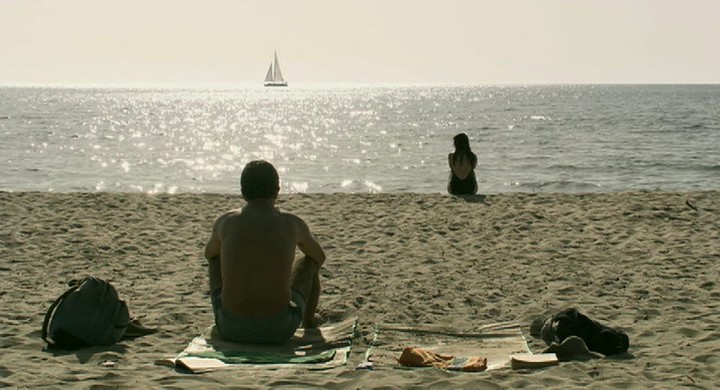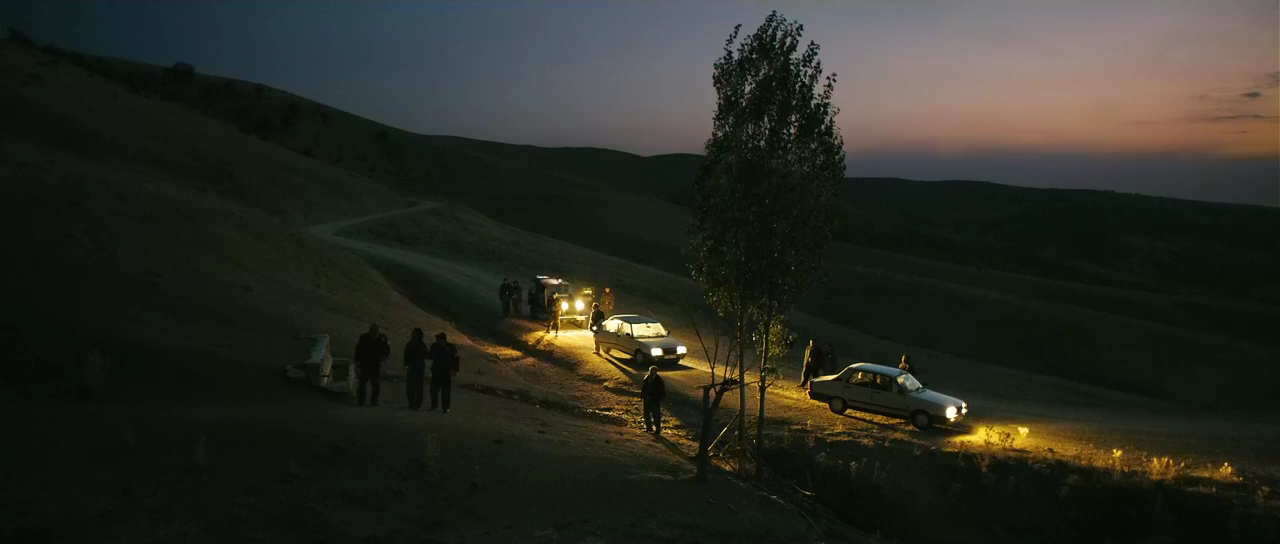“I am not a filmmaker who tells stories. I am a filmmaker who creates images. I would like to explain to the viewing public that, more than anything else, watching a film is about watching images. To be able to appreciate details like the transformation of the light, or the particularity of a sound, we need time.”
2014 Palme d’Or winner Nuri Bilge Ceylan did not say this.
It is, in fact, a quote by Taiwanese filmmaker Tsai Ming-liang, from an interview with the South China Morning Post. Tsai may have been merely rebutting criticism of his Walker project, but the approach to cinema he underlined above can define the globally celebrated Turkish auteur’s oeuvre too.
Ceylan’s fascination with visual art began in his youth. While studying engineering in Istanbul, he was part of his university’s photography club and took passport-style photos to make pocket money. Later, while studying film, he worked as a commercial photographer on the side. He performed the cinematography for his first three films himself, before beginning a successful partnership with Gökhan Tiryaki during Climates (2006), who’s been a regular collaborator since.
It is no wonder then, that the director’s films are so renowned for their sense of aesthetics. Fandor has previously covered this subject, in this detailed article by Vadim Rizov. Ceylan has a proclivity towards unhurried long takes, frequently featuring static compositions or glacial zooms, and visually his films evolve into a hermetic universe of their own.
The opening sequence of Climates, which won the FIPRESCI Award at Cannes in 2006, establishes this (along with several other things). The film is about the deteriorating relationship between Isa, a taciturn professor, and Bahar, his younger, comparatively volatile girlfriend. That Ceylan and his wife, Ebru, play both protagonists gives the movie a lifelike touch while rendering the plot eerily diegetic, as if the puppeteer and the puppets are the same entity.
In the pre-credits scene, the visibly bored Bahar flits around an archaeological structure that Isa is keen on photographing for his thesis. Giving up after a while, Bahar goes to sit atop a hill, waiting for Isa to end her solitary plight. Here, the camera focuses on Bahar’s face and rests on it for two endless minutes.
Her expression slowly changes from benign ennui to sadness, as if recognizing the lifelessness of her relationship. Sixty seconds in, the first tear appears. Soon, she has resigned herself to her fate so completely she does nothing when a fly rests on her hair. By the time the camera’s gaze is finally broken and the title comes up on screen, the viewer knows all he needs to know about Bahar’s state of mind and the relationship itself. The amount of information conveyed in these two minutes would require pages of dialogue in the hands of a lesser artist, and still not be as effective. It’s filmmaking of the highest order.
A similarly wordless moment and static composition is at the beginning of Distant (2002). A story of two cousins—Yusuf, a lazy buffoon from the countryside, and Mahmut, a snobbish intellectual based in Istanbul—and what happens when they are forced to live together for a few days, the film’s start shows Yusuf’s move to the city. After a quick jaunt through the credits, it locates Mahmut and what he’s up to: sex with an unidentified, unidentifiable woman.
It’s a starkly asexual sex scene. Mahmut doesn’t seem remotely excited or aroused by what’s about to happen; his partner, who’s always in the background, out of focus, is removing her clothes as if forced to. Finally, Mahmut moves to the bed and the scene cuts. It’s concrete evidence of Ceylan’s grip over the tone of a scene that not even a dunce would mistake this for a loving relationship. In fact, the tedious sigh that the woman emits as the act is about to begin leaves only one question: is this at least an affair, or sheer prostitution? (The film never answers the question.)
Climates is an “upgrade” in that it contains an actual sex scene. Isa, apart from being a self-absorbed and inattentive lover, is also an adulterer. After breaking up with Bahar, he visits Serap, the partner of an acquaintance, with whom he has had flings in the past. She doesn’t yearn for Isa as much as mock his frustration, and what follows is a rough-and-tumble act, literally.
Isa rests his head on Serap’s lap, and then moves up to kiss her. She is no petite belle, and tears at his shirt. Isa doesn’t let go, engulfs Serap in his grip instead and soon they are both on the floor, each trying to dominate and humiliate the other. This scene lasts for five minutes but feels much, much longer. The sex played out does not seem even slightly romantic or titillating. Moreover, it cements Isa as a pathetic, desperate character.
Throughout Climates, Isa suffers from emasculation. He can’t communicate well with his partner, is lackadaisical with regard to his thesis and a sad, chronic liar. Towards the end of the film, he hears that Bahar has moved to a snowy town in eastern Turkey for the shoot of a TV show. Despite theorizing to a colleague about the aptness of a sojourn to the beaches given the weather, Isa flies to this wintry location. He tails Bahar to run into her “accidentally” and gifts her a small trinket, which she promptly and rightfully forgets. His attempt to return the gift to Bahar leads to the film’s most memorable and hilarious scene, a conversation set inside a bus that goes on for five painful minutes sans cut.
Isa sees a weeping Bahar, distressed by his nonchalant return, and moves to placate her. Here again, he unspools lies knowingly and unknowingly. He hypocritically proclaims he is “ready to give up material things” and tells Bahar he doesn’t need anything from her…before asking her to quit her job and move back with him to Istanbul. She asks him just one question, to which he mutters a lie as a response. It’s a brutally unflattering portrait of a despicable person and Ceylan pulls no punches, as writer, director and actor.
Back in Distant, city dweller Mahmut seems cut from the same cloth that would later birth Isa. He used to harbor great ambitions of artistry—citing Tarkovsky as an influence—but today makes his money from shooting photos of tiles for a company. He pretends to watch Stalker while his cousin is in the room, only to switch to porn the minute he’s alone. It’s like high art bores him too. He obliquely accuses Yusuf of thievery, but not so obliquely that Yusuf–slow, no doubt–doesn’t understand what’s being said between the lines. Later, when Mahmut realizes his own carelessness led to the problem, he doesn’t bother to even assuage his cousin’s outrage.
Matters slowly come to a boil as Yusuf and Mahmut fight over more things every day, reaching the stage that the former opts to return home to potential joblessness rather than stay under the latter’s roof anymore. Forget a goodbye; he doesn’t consider his host worthy of an explanatory note. The dazed Mahmut is left sitting idly by the riverside, watching ships pass. He had one person to talk to, and he didn’t. Now he is all alone, and has only himself to blame. He will remain friendless for the near future.
Since then, Nuri Bilge Ceylan has moved on to bigger, and some would say better, things. Today, he’s recognized as one of the most skillful directors in the world with a near-perfect batting average. His last, Once Upon a Time in Anatolia (2011), was a sprawling 150-minute crime drama that won the Grand Prix at Cannes (just like Distant in 2002). His new film, Winter Sleep, has just won the Palme d’Or.
Yet, these two small, personal movies—a diptych in many ways—retain a quaint charm and undeniable magnificence that will be eternal. They form a formidable part of an important artist’s filmography and deserve your perusal.











